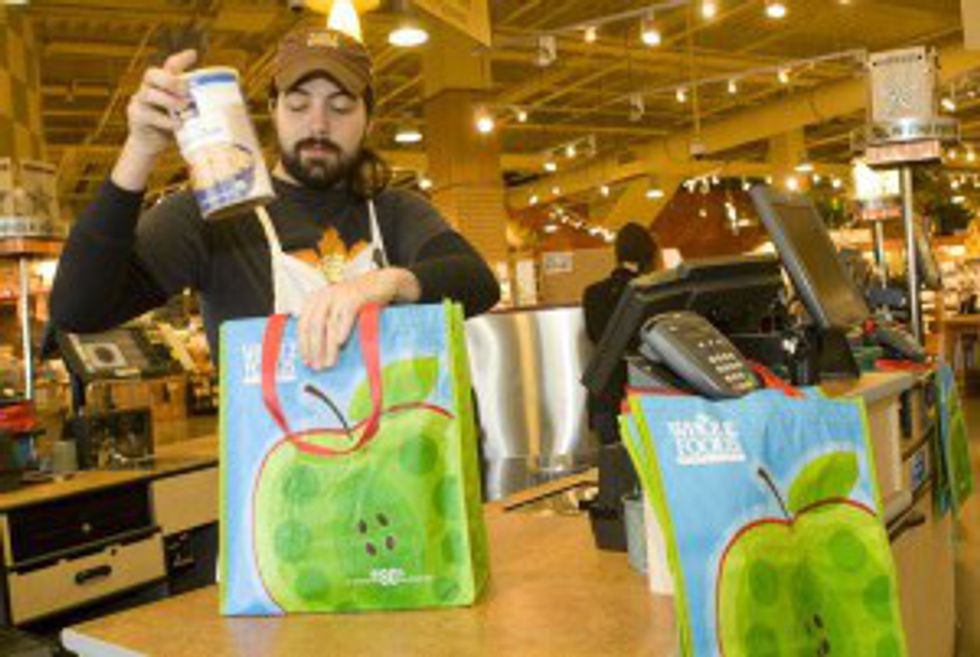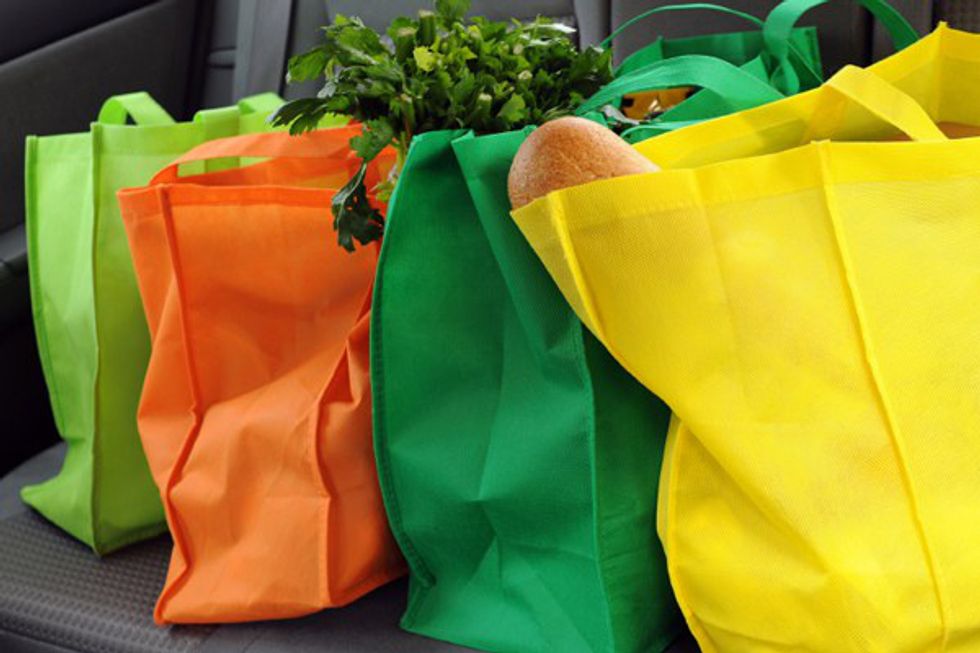You're at the register, ready to swipe your card and leave the busy store when the cashier asks you the same phrase he's uttered a thousand times today: "Paper or plastic?" If you listen to the environmentally conscious voice in your head, you probably choose paper. You're not alone. The idea that paper bags are more environmentally friendly than plastic bags is a common belief, based on the fact that they are recyclable, biodegradable and more "natural." In the United States alone, we use up to 380 billion plastic and 10 billion paper grocery bags every year — a ridiculous amount. The excessive use of disposable bags poses a great threat to the environment.
In production, creating a paper bag requires a greater amount of renewable resources and many more chemicals than a plastic bag. In order to make 1000 paper bags, more than 1000 gallons of water are used, compared to only 58 gallons for every 1000 plastic bags. In addition to using excessive amounts of water, the current paper bag industry manufacturing rate requires 14 million trees to be cut down each year, a demand that tree regrowth can't keep up with. On the other hand, every 100 million plastic bags produced uses 430,000 gallons of oil, which adds up to more than 1.6 billion gallons each year.
Not only does the manufacture of paper and plastic bags require a fair amount of resources, it causes pollution. The paper bag industry pumps out more than 70 percent more air pollution and 80 percent more greenhouse gases than plastic bags do, all the while obliterating the trees used to soak up carbon dioxide and convert it into oxygen. In addition to more air pollution and greenhouse gas emissions, generating paper bags causes 50 times the amount of water pollution than plastic.
When comparing your options, you must also take into account what happens to the bags after you use them. In a landfill, it can take a plastic bag anywhere from 15 to 1000 years to decompose — not to mention the fact that they don't always stay in the landfill! Plastic bags often float away and settle in trees, oceans, storm drains and beaches, causing big problems for the ecosystems in those areas.
Most places do not have effective recycling programs, causing paper bags to end up in landfills as well (which is not the right environment for them to biodegrade). This improper disposal results in paper bags building up more than five times the amount of waste than plastic, and allowing them to decompose in landfills generates twice as much CO2 as plastic bags. Most believe that recycling can solve the problem of waste generation, which is another widespread misunderstanding.
When a material is recycled, the product made from it is downcycled, meaning that it's lower quality than what you started out with. In this process, there are not many down cycles that can occur before a paper or plastic bag is no longer considered recyclable and ends up in a landfill to decompose and take up space. Overall, recycling rates are low for both types of bags, and the process of recycling them requires more energy than it may be worth.
So, if paper and plastic bags are both bad news, then what are we supposed to put our groceries in? Reusable shopping bags are smart alternatives to the wasteful nature of plastic and paper bags.The widespread switch to reusable bags will reduce deforestation and pollution rates and eliminate the wasteful processes of production, transportation and disposal. If one person used only reusable bags over their entire lifetime, more than 22,000 plastic bags could be eliminated from the environment, crazy right?
When deciding which type of reusable bag to purchase, consider choosing one made from sustainable materials such as organic cotton, hemp or jute. Not only is there a huge variety of reusable shopping bags on the market, some stores even offer a discount to shoppers who bring their own bags as an added incentive! Reusable bags are an easy solution for environmentally conscious shoppers.











 The minimum wage is not a living wage.
StableDiffusion
The minimum wage is not a living wage.
StableDiffusion
 influential nations
StableDiffusion
influential nations
StableDiffusion












